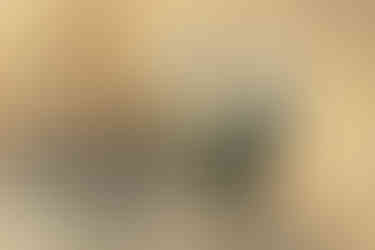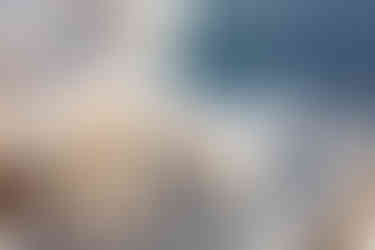Have I learned Anything from Nadab and Abihu
This week’s Torah portion is Shemini (Leviticus 10). There is no other Torah passage that I have thought about more or that has caused me more confusion. In Exodus (28:1), G-d chooses Aaron (Moses’ brother) and his sons to serve as priests. They were charged with doing priestly and ritual stuff. These were very important positions and duties. Shemini explains that Aaron’s two eldest sons, Nadab and Abihu, offered “strange fire” (aish zarah) as a sacrifice and G-d reacted by consuming them with fire and killing them. Losing his two eldest sons must have been excruciatingly painful for Aaron. What made it even worse, Moses warned Aaron that he should not grieve his sons out of fear that G-d would be further angered. Just what did Aaron’s sons do to make G-d so angry; angry enough to kill them?
When I first read and studied this portion of the Torah, I immediately remembered a story from my childhood. I was raised in an orthodox Jewish family. When it came time for Pesach, my mother would gather up all the chametz (not kosher for Passover) in the house. We would then have a smorgasbord picnic in the basement to finish off what we could. The rest of it was burned. Any style of bread was strictly forbidden. Not eating leavened bread is a symbolic remembrance of our exodus from Egypt (as slaves) and having to hightail it out of there before there was time for the bread to rise. Hence, the Jewish world gets the bread of affliction (matzah), and the Christian world gets ‘the body of Christ.’ Funny how all this stuff works … or not so funny.
One of our spring breaks from school coincided with Pesach. A group of us from the neighborhood decided to walk to South Taylor to visit a friend who worked at a bagel shop. While we were there, our friend offered each of us a bagel.
What is better than a bagel? A free bagel. What is the scariest bagel? The one you eat during Pesach.
I totally forgot that it was Pesach, and I ate the bagel (chametz). It was the only time in my entire childhood (and my entire adulthood for that matter) that I ever broke Pesach. It left an indelible impression as I clearly remember this event which occurred more than 60 years ago. I felt guilt and I also felt fear, because at that stage of my development, I still believed that G-d could bring the hammer down for this type of transgression. There are 613 mitzvot in the Torah. These are all the dos and the don’ts. These rules are not to be messed with. Just ask Nadab or Abihu.
Nadab and Abihu broke a rule, and they were literally toast. They were cooked for offering ‘strange fire,” whatever that might be. It isn’t defined in this passage or any other. Rule broken. If this happened to Aaron’s eldest sons, what could G-d do with me for eating a bagel on Passover. As a young child, I was faced with an existential decision. I could decide to do whatever I want from now on, because I already sealed my fate as a chametz eater during Pesach, or I could toe the line with extra diligence and try to make up for my error. I ended up doing what most children do; I forgot about it. But I do remember and think about this event every time I read about Aaron’s sons.
I have read many commentaries about Shemini, trying to find a reasonable or rational explanation as to why G-d would whack Aaron’s sons. None of them are all that compelling to me. I’m not the only one who is baffled by G-d’s reaction to what on its surface seems to be something akin to eating a bagel during Pesach. Oh oh. I have asked my rabbis more than once why G-d killed Aaron’s sons. I have yet to get a good explanation. As a child, it would be perfectly reasonable to conclude that there’s no wiggle room with the Lord. You mess with strange fire or eat a bagel during Passover or put a slice of cheddar cheese on a burger and you could end up looking like the burning bush. If one is attempting to figure out a conception of G-d, the killing of Aaron’s sons is some pretty disconcerting ‘behavior’ from an all loving, all caring, and just G-d.
Either Aaron’s sons did something bad enough to warrant G-d’s reaction or G-d is ‘behaving’ in some kind of arbitrary and capricious fashion … not exactly what you want to think about in regard to an all-powerful, all-knowing, supreme being.
My Zadie was the expert in our family on all things Judaism and Ashkenazi culture. My Zadie came from Russia. He grew up in a shtetel (small village) outside of Kiev. As I’ve noted many times before, his life was like Tevye’s in Fiddler on the Roof with all the trauma and heartache and without the great music. He was only educated in Jewish schools in his village because Russia didn’t allow Jews to receive a ‘public education.’ He was conscripted into the Tsar’s army and served in the calvary.
He was a very pious and a very spiritual man. If you had any questions about ritual or rules, you went to Zadie. He had comprehensive knowledge about what and how. There were no whys. ‘We do it because that is what we’re told to do.’ I went to Hebrew school four days a week and didn’t get any explanations there either. I was taught to doven (pray) as quickly as I possibly could; like, how many times can you say the aleinu in 60 seconds? I was blazingly fast, and I hadn’t the slightest idea as to what the prayer meant or why I was saying it.
What are G-d’s standards regarding the breaking of rules and what is he prone to do about it? My childhood prepared me not to have any great answers to these questions.
One might ask … why do I care?
Why I care is more pertinent to my adult self than it was to my young child self.
I’ve had more than a passing interest in this story as I am a Levite. The Levites were and are the priestly group who are associated with public rituals and worship. While membership in ‘The Tribe’ is matrilineal, the membership as a Levite is patrilineal, passed from generation to generation through fathers. Through my father, this role has been passed down for thousands of generations from Aaron and his sons to me and my brother, Larry, and now to my sons, Aaron and David, and to their sons, Leo, Maceo, Van, Rhys, and Bonzi. So, this is a story about my peeps.
Before I get to what the Supreme Being might be up to, let me start with my ideas about religion.
I spent many years studying to become a cultural anthropologist. What I learned in the earliest of lectures in my first class was that culture was a complex whole. Every element of a society’s way of life fits together to support the whole. Subsistence practices, kinship, economic and political systems, and religious beliefs and rituals are highly integrated, along with all other institutions to support a healthy society. When they don’t fit together, often from dramatic and rapid change, problems result (internal, personal, and societal conflict). Where do all these cultural elements or institutions come from? They are either constructed from within the group based on creativity or invention or discovery or they are borrowed from neighboring groups. Either way, all of it is a creation of human beings. We make it all up.
The religions of every society are created to support all the rest of the institutions of that society. Origin myths, belief systems, rituals are created to support economic, social, and political systems and all other institutions. There used to be more than 5,000 different cultures around the world. I’m not sure how many are left as colonization by the western world has pretty much destroyed many of these societies or created mish mash out of them through proselytizing, assimilation, or just plain old raping, pillaging and annihilation. Each of those 5,000 plus cultures had their own religions. Each of those religions had their own unique beliefs and rituals.
The notion that all human societies are alike is wrong and naïve. We are not. We are similar in so much as we have basic biological needs that must be satisfied. Those are taken care of by culture, our way of life. We all have to eat. Every society has different ways of defining what is food and how to procure it. We all need to shelter from the elements. Every society has defined a way of life to create these shelters and clothing which are highly dependent on the environment that they call home. Every group needs to find ways to reproduce. Thus, every society has defined a kinship system to define important roles in a family and group and to determine who it is a person is supposed to marry or not marry. Every society needs to develop ways to organize and to keep peace amongst themselves. Thus, every society has developed social and political systems. And each society has defined a set of religious beliefs and practices that ensure that all these institutions are operating as a well-oiled machine (as Durkheim might have described it) and that everyone is behaving themselves.
In each of these societies, culture has created a different answer to how that particular group is going to survive and thrive in their own environment and in their own historical context. We are most definitely not all alike.
And interestingly, each of these groups believes that they are the chosen people. They are the special people, and their way of life is the right and natural way of life. All those other people who do things differently are not chosen and not special. And for thousands of years, they didn’t really believe that these other groups were human … or not like the really human members of their own group. And it is that horrible notion that makes it easier to beat ‘the other’ over the head with a rock or large stick (or shoot them if they ring the wrong doorbell or pull into the wrong driveway).
And for many of these groups, it is a fundamental conception that their beliefs and rituals (and their entire way of life) were handed to them or inspired by a Higher Power. Every human group becomes the chosen ones.
To review, our unique religion fits as a piece part with everything else about our way of life. Different religions support, reinforce, define, and rationalize different ways of life. Thus, our own (name the specific society and culture) original myths (stories), the many allegories that serve as lessons and definitions of right and wrong, and the stories both oral and written that define and recount our unique histories are constructed by the members of each society and they are all made up.
Religion also provides us with the answers to all the unanswerables. The more we learn from science, the smaller those unanswerables become, so long as you are open to facts and science. But there will always be unanswerables, like what does the wallpaper look like in heaven and when are meals served?
There are cultural universals. These are elements and institutions that are found in the most general sense in every society. The specific forms, functions and purpose of these elements and institutions differ between every society. For example, every society has some conception of a spirit that leaves the body at death. The explanation as to what happens after the spirit leaves differs between every religion.
I’ve often considered that it’s possible that all of humanity could be so ego driven that it is too difficult to consider that this life we have on earth is all we get. There could be something so basic to the way all of humanity ‘thinks’ that it is too much of a challenge to believe that once ‘the spirit’ leaves us at death, that we return back to the earth as quality fertilizer. Period. It is possible that an afterlife was invented by all human groups to make it easier to emotionally and psychologically manage the inevitability of death.
So, did the Great Spirit give one of these societies all the right answers – the Legitimate and Real Chosen People – and leave 4,999 societies wandering around aimlessly in some kind of stupefied state of confusion? Why would a benevolent, just, loving, caring Great Spirit do such a thing?
Or do all these 5,000 societies have it all wrong. Or do all these 5,000 religions in 5,000 different societies have all the correct answers? Well, how in the hell would I know.
Here’s pretty much the bottom line for me.
I am a patriotic American by accident of birth.
I speak English by accident of birth.
I am an ‘observant’ Jew by accident of birth.
I swear in fluent Yiddish by accident of birth.
If I had been born to Crow parents, my culture, identity and beliefs would be the same as all Crow people. If I was born to Dugum Dani parents, my culture, identity and beliefs would be the same as all Dugum Dani people.
It was a great accident for me in so many ways. I am grateful for all the accidents that have been bestowed on me, not the least of which is that my life came at a time and place where Jews weren’t being tortured and slaughtered, and I wasn’t forced to practice my religion in the basement with the lights off. Can’t say for sure how long that’s going to last, but I am so grateful that I had the great blessing of not having to hide who I am to survive until tomorrow.
There are many people who believe in destiny which precludes this whole notion that who we are is an accident of birth. There are people who believe that when a spirit leaves one person it can reinhabit another or some variety of reincarnation. There are actually some Jewish people who share this kind of belief. As I believe that we are all making it up, I’ve decided that destiny or reincarnation are merely human creations. If we all reached the conclusion that human groups were making it up, there would not be others. If we’re all accidents of birth, there wouldn’t be reasons not to be nice to each other. I know, it is a lot to ask.
On Rosh Hashanah and Yom Kippur we say a very important prayer that has to do with the day of judgement (Unetanah Tokef). Christianity has their own version of this set of beliefs.
On Rosh Hashanah it is inscribed, and on Yom Kippur it is sealed - how many shall pass away and how many shall be born, who shall live and who shall die, who in good time, and who by an untimely death, who by water and who by fire, who by sword and who by wild beast, who by famine and who by thirst, who by earthquake and who by plague, who by strangulation and who by lapidation, who shall have rest and who wander, who shall be at peace and who pursued, who shall be serene and who tormented, who shall become impoverished and who wealthy, who shall be debased, and who exalted. But repentance, prayer and righteousness avert the severity of the decree.
If you do good, and/or atone for what you have done bad, G-d will weigh it all, and decide about your fate for the coming year. Once G-d makes this decision, that is the way it is going to be … it is sealed.
And which Higher Power is weighing the evidence and making these decisions on this day of judgement? Are you going to get the forgiving, loving, caring Higher Power, or are you going to get the Great Spirit who killed Nadab or Abihu before they had the opportunity to apologize for offering whatever the heck strange fire could be?
Who by fire…
Pauline died in a fire in August 2017. When I went to Rosh Hashanah and Yom Kippur services that fall and read this prayer, my head exploded. I was ready to convert to Shintoism and I don’t know anything at all about Shintoism. The notion that G-d made any kind of decision about Pauline’s life and death repulsed me. That it might have been possible that there was any kind of behavior on her part that could have warranted this severe decree was entirely impossible for me to accept. She was an amazing human being. There was nothing she had ever done or could have done or could have believed that would have resulted in the way she suffered in both life and death. I totally rejected the entire notion, and I was offended and angered by it.
To begin with, and as noted, I’m not a destiny kind of guy. I just don’t believe that any of us are predestined for anything. I believe that we create our own presents and futures. And as Rabbi Harold Kushner has so eloquently explained, I believe that most of life events can be attributed to shit happens (When Bad Things Happen to Good People). May his memory be a blessing.
I haven’t the slightest idea about what’s going on in the spiritual realm. My life experiences have convinced me that no society has found absolute answers to the unanswerable questions. I’ve made sense of the spiritual in my own way, which the last I looked, was probably as plausible as anyone else’s answers.
I don’t believe that a Higher Power is doing anything bad to us. I’m not sure the Higher Power is doing anything good to us. And I’m entirely convinced that the Great Spirit isn’t killing good people or bad people or any people. So, what is G-d’s involvement with humans? How in the hell should I know? I’ll find out when I die, or I’ll become fertilizer and all the unanswerables will become entirely irrelevant.
I know there is a Supreme Being. The belief in one Great Spirit is in my cultural DNA. The first prayer we learned is the Shema. And that it should be the last prayer on your lips as you leave this world. The Lord is One. Growing up in my family with my Zadie … there was not much room for me to believe otherwise. From my life experiences, and my understanding and appreciation for cultural diversity, I have also come to believe that the Supreme Being is the same for all human beings. The Great Spirit is the same for Jews, Hindus, the A’aniiih, Buddhists and Moslems.
In Judaism, G-d does not have a form. That’s a tough challenge for us mere mortals. We want to anthropomorphize because we make sense of our lives by analogizing to what we know and understand. Whether your religion gives you more structure than mine does, I still believe you are making it all up. For example, most of the depictions of Jesus which are creations of western artists likely do not have a shred to do with reality. A white guy with blond hair and blue eyes doesn’t make a whole lot of phenotypical sense for Jewish people in that time and place. Jesus was a Jewish guy born in Bethlehem, not Copenhagen. During the times when many of these artistic depictions were being created, dark skinned people were hardly considered human by most of the western world. How would it be possible to create the son of G-d as the other? Not possible. Ergo. Jesus ends up looking Scandinavian.
If John and Mary had a camera, Black Lives would have Mattered in the most profound ways.
We make up the ways we see all the universe within our own historical, cultural, and personal context. We find comfort and security in defining all our existence in ways that make sense to each of us. To do otherwise would be emotional and psychological mayhem.
Whether you become a true believer in the religion you were raised with or not … the religion of your parents and your family will shape what you believe. It is inescapable because it is a part of the earliest childhood socialization. We absorb this stuff both consciously and unconsciously. Just ask Freud. What we learn in the earliest childhood helps to form who we are which includes what we believe. And infants and young children have no choice in any of this. We absorb all our culture and language like a sponge.
Also, as noted, culture is a complex whole. The whole question about is Judaism a religion or is it a culture is sort of nonsense to a cultural anthropologist … they mean the same thing. Jewishness is Jewish culture which includes the Jewish religion.
A belief in a Supreme Being must be one of the most personal beliefs any of us possess. Every religion offers a structure of sorts for how one is supposed to believe in and conceptualize about a Great Spirit or for some religions, Spirits – as in plural. But at the end of the day, I’m pretty sure that every single person on the face of the earth holds a conception that is perfectly unique to that individual. That concept has to do with their personality and life experience. And it has everything to do with their creativity and imagination.
One of my rabbis once told me that my Hebrew name, Israel, is appropriate for me. It means ‘struggles with G-d.’
I wouldn’t characterize my endeavor as a struggle. I have come to accept that I’m not capable of understanding anything about a higher power. As a mere mortal, I’m not equipped in any way to comprehend the Great Spirit or the Supreme Being’s relationship with humans. And perhaps most importantly from the perspective of living on the planet earth, just what kind of influence or impact this Higher Power has on our lives.
When I listen to friends or family describe a personal relationship with G-d, I honestly don’t know what that means. I understand the words. What I don’t relate to is the underlying faith that is inherent in that relationship. I’d like to have it. I just don’t. I’d like to have it because I see and feel the security and comfort that comes with that kind of faith. I saw it in my Zadie. I experienced it in Pauline. It is wonderful and powerful. Unfortunately, I kind of believe that you have this faith, or you don’t. I don’t know how to manufacture or learn faith. I don’t believe that a person can wish and hope their way into faith. Whatever one does in life to acquire this kind of faith, I missed it … along with my understanding of math beyond addition and subtraction.
What does G-d do with the notion that all his people have created all these different belief systems and all these different conceptions of Himself … like does the Supreme Being have a self? Regarding all these questions, just how in the hell would I know?
I’ve never been too defensive about what I don’t know or my shortcomings. I’m sufficiently satisfied with who I am and what I can do well enough, that my lack of knowledge doesn’t interfere too much with my self-concept or self-worth. I think I’m pretty much mediocre at lots and lots of things. I’m grateful for what I can do and what I know. And I’m comfortable that I’m not going to know more than I do about a Higher Power or all the spiritual issues that remain unanswered for me.
My perspective and beliefs in the spiritual realm have caused me some interesting issues regarding the meaning of prayer. And I’m referring to the kinds of prayer that involves an ask. If I don’t believe that the Great Spirit is involved in doing anything bad to us, it becomes a real stretch to get to the conclusion that the Higher Power is doing anything good to us.
Before I had developed my full-blown ambiguity about these issues, I prayed a lot. I can vividly remember praying through an entire night after my dog was hit by a truck. I can’t say that I believed that my prayers would be answered. I at least believed that my prayers would be heard.
I inherited some strong feelings and beliefs about justice and about hypocrisy. Those came straight from my father. It made him insane when he or people he cared about were subject to any kind of injustice. And he couldn’t tolerate any kind of hypocrisy. I cannot remember a single instance when I observed my father being a hypocrite. He was totally honest (sometimes too honest), and he was entirely consistent between his beliefs and values and his behavior.
So, what could that possibly have anything to do with prayer?
Well, praying when you have no expectation whatsoever that your words are being heard or acted upon, feels sort of disingenuous … or hypocritical. I don’t want to pray because, hey, it’s free, why not cover one’s bases. I also don’t want to find myself in the world of shtetl superstition with my prayer. That doesn’t feel much better than doing it because it’s available. Prayer feels way too hypocritical in those instances. If you don’t believe that a higher power has anything to do with what is going on across the planet earth, prayer becomes, at best, an ambiguous activity.
I still pray. I actually pray a lot. Life has offered me some incredible stuff to be praying about. Prayer has become a hope as opposed to any kind of expectation that what I say or do in making a request might result in some kind of spiritual intervention. Hoping for something is a pretty watered-down version of the meaning of prayer. Prayer is a way for me to connect with the person or people I am praying for. When I pray for healing for a friend or family member who is sick, I feel this as a way for me to send them my positive thoughts (vibes). In the case of my praying for Pauline, my father, and other family and friends who have died, I am feeling the importance of honoring their memory in my mind and heart. I haven’t the slightest idea where they are or if there is some kind of spiritual existence. I don’t believe it is possible for me to know (or for anyone to know).
Interestingly, my parents never asked me whether I believed in a supreme being. They want to know that I’m in temple for the high holy days. They want to know that I’m keeping Pesach. Their heads would have blown up if Aaron and David hadn’t been bar mitzvahed. They want to hear that I’m saying Kaddish for all of those in my family who I should be saying the mourning blessings for on their Yahrzeits. Hey, do you believe in
G-d? It has never come up. My rabbis aren’t asking me either.
In the most curious of ways … whether I do or don’t, and if I do, just what is my belief and conception of G-d does not define me as a Jew. Sort of amazing in so many ways. But it is the truth. I have no idea really what my parents believed about a Supreme Being or an afterlife. I haven’t asked and it has never come up in conversation. I don’t feel as though I need to know. These beliefs don’t define who they are, nor does it define their Judaism.
Even though I know about and understand many cultures, I am a member of the society and culture I was raised in. I can be objective from a cross cultural sense about different cultures, including different religions, without losing the culture I was raised in and live in. I am a Jewish American. That is my way of life.
My sense of morality and my ethics come from my Jewish heritage and culture. I participate in many rituals and practices that are uniquely Jewish. I engage in behaviors and share a world view that is distinctly Jewish. There are overlapping elements in Judaism and Christianity and Islam, as Judaism forms the foundation for those religions. However, there are many elements of Judaism that are not found in either Christianity or Islam. We are a unique culture within the greater American society. My identity is as a Jewish American.
While my beliefs might be somewhat off the rails, my pride and attachment to Judaism is strong. My family members made unbelievable sacrifices during their lives to be Jews. Many of my family members lost their lives because they were Jews. Period. They didn’t lose their lives because they were rich or poor, tall or short, dumb or smart, honest or not, a good person or bad person – just because they were a Jew. So many of my people have lost their lives to be a Jew. These sacrifices have been going on for centuries. I have read about and listened to their stories throughout my life. I have a reverence for these stories, and they make my adherence to my culture and my identity even stronger. There has been so much suffering behind me in my family’s history and my people’s history for me to be in this time and place. I feel it as an obligation to adhere to who I am … who we are. It is one of the great miracles of life on earth that the Jewish people exist. Everyone has been trying to exterminate us from the beginnings of historical time. (Please read People Love Dead Jews by Dana Horn).
I have come to appreciate that Judaism provides me with all that I want or need. When I hear of a Jewish person who is attracted to a different religion, I always wonder what they think they’re going to get from that religion that isn’t offered by Jewish beliefs and rituals. Judaism has everything. Our holy books are a combination of an incredibly rich history and some world-class creatively, made-up stories. We have a wonderful and powerful history. We’ve got some great lessons for how to treat other human beings. Being Jewish offers up some wonderful values for living in the western world. And our answers for all the unanswerables are as good as any other religion, precisely because they don’t have any greater access to the real answers than we do. Judaism has been so incredible, in fact, that it has served as a springboard for billions of Christians and Moslems who have gone on to make up their own religions.
As I have more years behind me than in front of me, I am grateful for my comfort with accepting what I cannot possibly know. So many of the faith issues feel to me as a suspension of reality. I am more adept at a commonsense appreciation for what I know to be than I would be developing a spiritual hernia trying to achieve a faith that doesn’t seem to belong to me.
Winter at Hard Road Park
What could possibly be better than lovely dead crap? How about lovely dead crap covered in frost on a sunny day.










































































Sandy, your text is a fascinating introduction to your latest photos.
Seeing the beauty of the 'lovely dead crap covered in frost on a sunny day' reminds me that I, too, shall soon be a lovely dead Jew covered in frost on a sunny day.